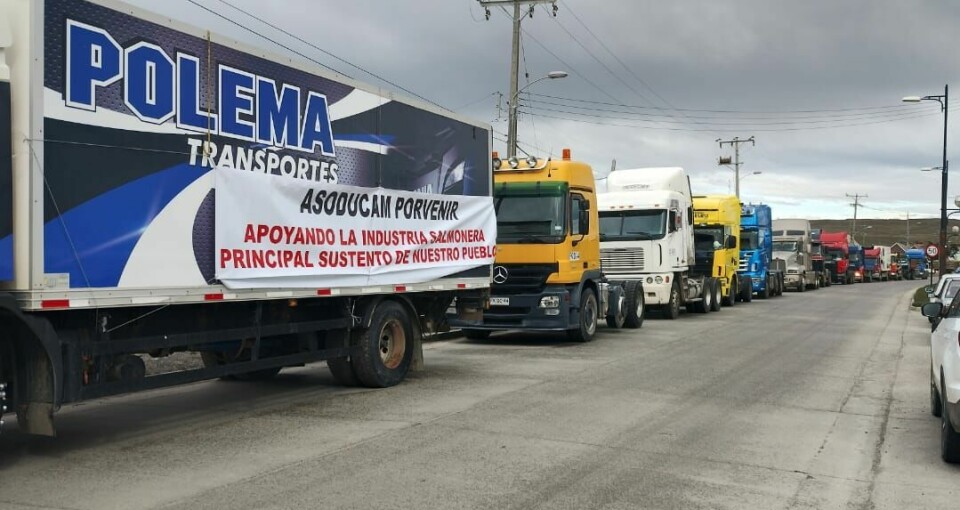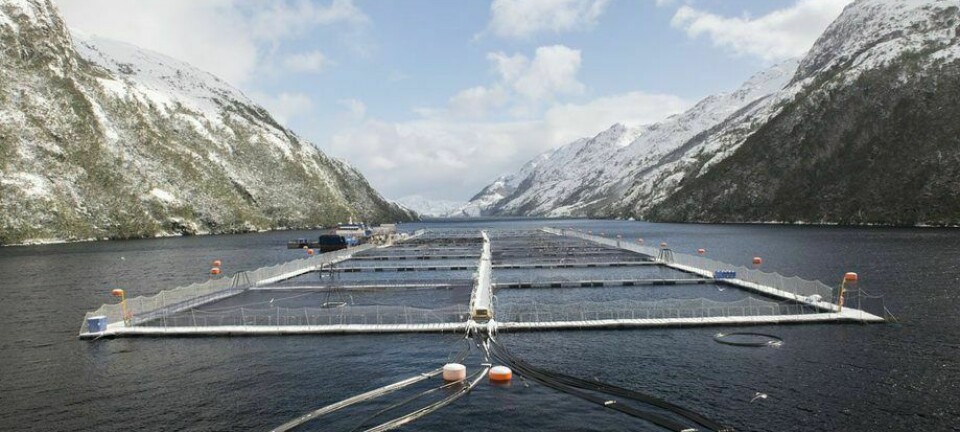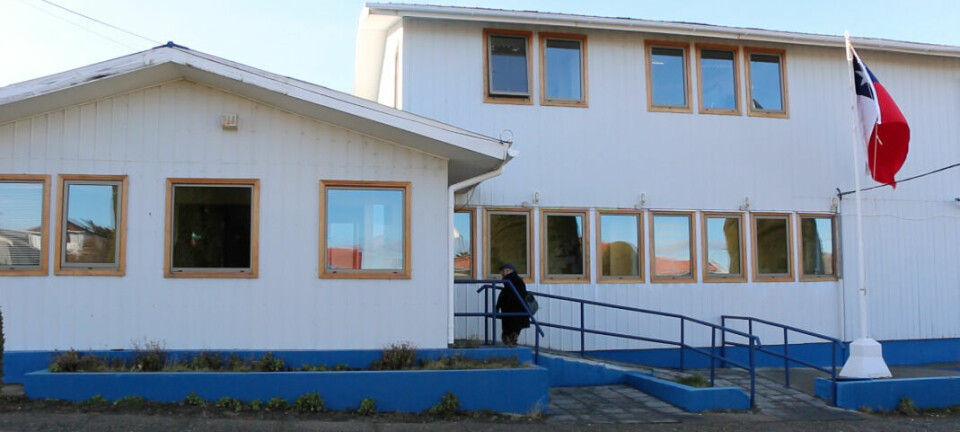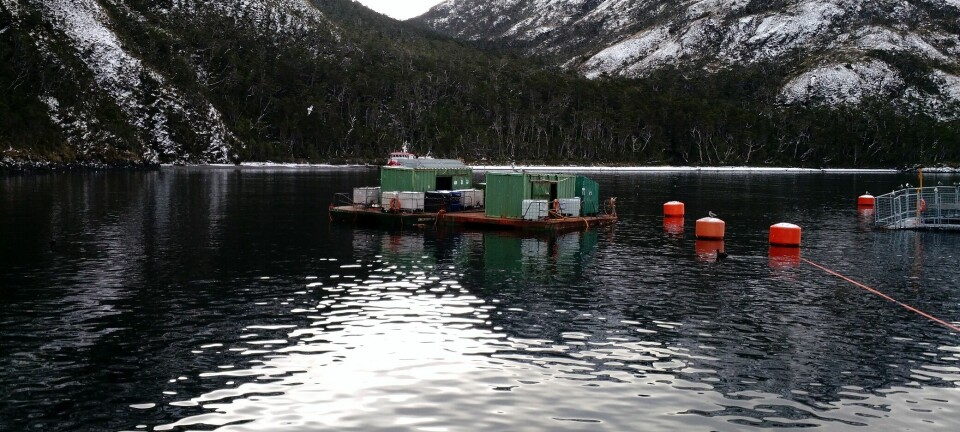
Convoy highlights need to save troubled Chile salmon farmer
Almost 3,000 jobs in Magallanes rely on debt-ridden Nova Austral
A convoy of vehicles has been driven through the streets of Porvenir in southern Chile to demonstrate the community’s support and concern for the fate of debt-ridden salmon farmer Nova Austral.
The company, which owes US $560 million, faces closure if it can’t agree a restructuring deal with creditors and has warned that almost 3,000 direct and indirect jobs depend on it staying in business, reports Fish Farming Expert’s Chilean sister site, Salmonexpert.cl.
In an application for a judicial reorganisation presented to the Court of First Instances and Guarantee of Porvenir in June, Nova Austral said it is a key economic actor for the Magallanes region and especially for the municipality of Porvenir where it is the main employer.
Earlier this year Nova Austral, largely owned by Norwegian shareholders, presented a plan to the court which would have converted the debt into shares, effectively handing ownership to the company’s bondholders.
Special terms for DNB
But the proposal, which would have given Norwegian bank DNB five shares for every dollar of debt and other bondholders just one share per dollar, was rejected. Financial media reported that DNB, which is owed $69m, was receiving special treatment because it has made separate loans to the company guaranteed by specific assets.
Another hearing is scheduled at the court for October 26 in which a revised restructuring plan will be considered.
Ahead of that hearing, six Nova Austral unions sent a letter to the Norwegian ambassador in Chile in which they asked the Norwegian government to intervene in the workings of DNB Bank, in which the state holds a 34% stake.
According to the unions, DNB “is putting pressure through the Norwegian justice system so that Nova Austral does not achieve a path for its reorganisation, but more for a total liquidation of the company”.
No right to intervene
In response, the Norwegian Embassy denied a request for a meeting with the country’s ambassador and pointed out that it “does not have any right of intervention towards DNB or other companies involved in this matter”.
The Norwegian government’s stake in DNB is managed by the Ministry of Industry, Commerce and Fisheries, and its policy is that “companies and their boards of directors are responsible for management and commercial decisions”.
In a second letter to the Embassy, the unions argued that “beyond the possible contractual limitations and rights that they may have as an embassy in a Norwegian state financial entity, we believe that the situation of Nova Austral, due to its status as a company representing the interests of your country in Chile, must be approached by the entity that you represent”.
Cry for help
Last Wednesday, the community of Porvenir took to the streets to express their support for the workers of Nova Austral and to demonstrate against the foreseeable economic consequences if the company closes.
Different organisations joined a vehicle convoy with banners alluding to the problem.
The president of the Tierra del Fuego Truck Owners Association, Carlos Gallardo, said that they sought to draw the attention of the authorities to provide solutions to salmon farming in Porvenir and the region.
Nova Austral’s troubles stem partly from 2019 when a months-long investigation by an online newspaper revealed that the company had massaged its figures to conceal mortalities. This led to senior managers being sacked.
'Unprecedented sanctions'
Lawyer Ricardo Reveco Urzúa, representing Nova Austral, said in a submission to the Porvenir court in June that the company had been faced with unprecedented sanctions by the Superintendence of the Environment, which revoked environmental permits for some salmon farms, and by state aquaculture agency Sernapesca, which applied sanctions that limited harvests in other farms.
Authorities had also frozen payments of more than 7 billion Chilean pesos that Nova Austral had been due to receive under the Navarino Law that incentivises the establishment of businesses in the Magallanes and Chilean Antarctic through tax and customs benefits.
“All of the above has meant a decrease in the company’s production to a third compared to what it was a few years ago, which has obviously affected the company’s cash flow and damaged its ability to meet its commitments with its creditors,” said the lawyer.


























































